Breast Augmentation in Tunis
Search and Compare the Best Clinics and Doctors at the Lowest Prices for Breast Augmentation in Tunis
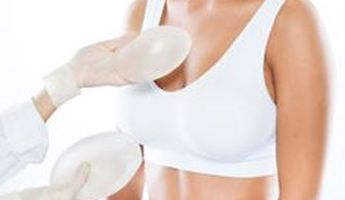
Find the best clinics for Breast Augmentation in Tunis
With Medijump you can browse 4 facilities offering Breast Augmentation procedures in Tunis. The cheapest price available is $1,815 in Monastir
Breast Augmentation in Tunisia
Price: $ 1,815
Breast Augmentation in Monastir
Price: $ 1,815
Breast Augmentation in Sousse
Price: $ 1,906
Hungary offers the best prices Worldwide
Price: $ 208
From 37 verified reviews
Saoussen Saidani, 13 June 2020
My 12 year old daughter Lina has had surgery Pancreas tumorHeavy Operation which went very wellI thank all the staff of the Pasteur clinic for their hospitality and their hygiene ...I thank the doctors who attended the operation and in particular the surgeonAYADI Sofiene who accompanied us from the start for his professionalism as well as DR Walid Miraoui. The discovery of this tumor is done in a very short time a week to manage allThe support of Surgeon Ayadi Sofiene was really perfect as a parent we were reassured and above all in confidence.And especially I thank them for the moral support of My Daughter Lina who kept the smile until the end and who It is found in Total confidenceThank you so much for saving our childMr er Mrs Saidani
From 11 verified reviews
Toumi Mondher, 02 April 2019
The Department of Extraction and Billing at the Center of Imaging and Radiology, two patients, treated me with a reputation as a Tunisian clinic, and I bear the responsibility to speak this
Clinique Taoufik, located in Boulevard Mohamed Bouazizi, Tunis, Tunisia offers patients Breast Augmentation procedures among its total of 225 available procedures, across 24 different specialties. Currently, there's no pricing information for Breast Augmentation procedures at Clinique Taoufik, as all prices are available on request only, whilst the national average price is approximately €2,130. There are many specialists available at the Clinic, with 10 in total, and they are accredited by ISO 9001:2008
Cosmeticare Travel, located in Boulevard Mohamed Bouazizi, Tunis, Tunisia offers patients Breast Augmentation procedures among its total of 34 available procedures, across 4 different specialties. Currently, there's no pricing information for Breast Augmentation procedures at Cosmeticare Travel, as all prices are available on request only, whilst the national average price is approximately €2,130. There is currently a lack of information available on the specialists practicing at the Hospital, and they are not accredited by any recognized accreditations institutes
Clinic Apollon, located in Boulevard Mohamed Bouazizi, Tunis, Tunisia offers patients Breast Augmentation procedures among its total of 90 available procedures, across 1 different specialties. Currently, there's no pricing information for Breast Augmentation procedures at Clinic Apollon, as all prices are available on request only, whilst the national average price is approximately €2,130. All procedures and treatments are undertaken by just a small team of specialists, with 2 in total at the Clinic, and they are not accredited by any recognized accreditations institutes
Compare Before & After Photos of _procedure_photos.phpBreast Augmentation
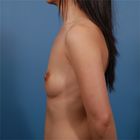

Full-side view
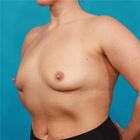

Half-side view
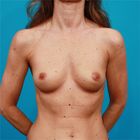
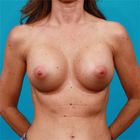
Front view
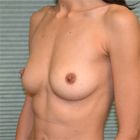

Half-side view
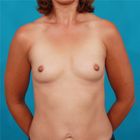
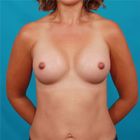
Front view
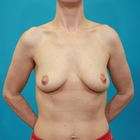

Front view
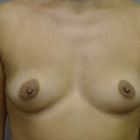
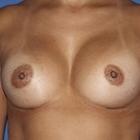
Front view
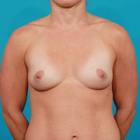

Front view
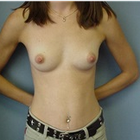
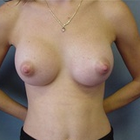
Front view
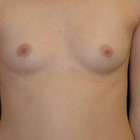
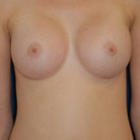
Front view
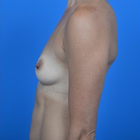
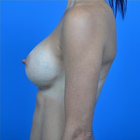
Full-side view
WHY US?
At Medijump, we're making medical easy. You can search, compare, discuss, and book your medical all in one place. We open the door to the best medical providers worldwide, saving you time and energy along the way, and it's all for FREE, no hidden fees, and no price markups guaranteed. So what are you waiting for?

Free

Best Price

Widest Selection

Risk-Free
What you need to know about Breast Augmentation in Tunis

Breast augmentation, also known as a Boob Job or Breast Enlargement, is a surgical procedure aimed at increasing breast size, enhancing shape, or improving symmetry. In Tunis, this procedure is carried out by board-certified plastic surgeons in accredited medical facilities, ensuring both safety and quality.
What is the cost of Breast Augmentation in Tunis?
Prices in Tunis are competitive, often offering savings without compromising on quality, especially when compared to costs in the US or Europe. However, factors such as surgeon’s fees, facility costs, and the type of implants affect the total cost.
What does a Breast Augmentation Procedure Involve?
The surgery involves placing breast implants under the breast tissue or chest muscles. Choices between saline or silicone implants can be made based on the desired feel and appearance. This is something your surgeon will discuss with you prior to even travelling.
How Long Should I Stay in Tunis for a Breast Augmentation Procedure?
The length of stay in Tunis for a Breast Augmentation is subject to various factors, such as your overall health, the specific nature of the procedure, and your individual recovery rate. Generally, Breast Augmentation surgery is an outpatient process, meaning you may be able to return home on the same day. However, a stay of up to two days might be necessary if your procedure is more intricate.
Although the hospital stay is relatively brief, it is advisable to remain in Tunis for at least one-week post-procedure. This timeframe allows for initial recovery and a follow-up appointment with the surgeon. Moreover, in the event of any complications, prompt medical assistance will be accessible. Thorough knowledge of the recovery process and its duration is crucial for proper preparation and managing stress during treatment.
What's the Recovery Time for Breast Augmentation Procedures in Tunis?
Post-surgery, a recovery period of one to two weeks is generally required, with follow-up visits to the surgeon. It's crucial to follow all post-op instructions for optimal healing.
Experiencing swelling and discomfort following the operation is normal, both of which should gradually alleviate with time. You will be required to wear a compression garment, take prescribed medications, and maintain a healthy lifestyle for an effective recovery.
What sort of Aftercare is Required for Breast Augmentation Procedures in Tunis?
Post-operative care is critical for the success of a Breast Augmentation. The initial recovery phase usually includes prescribed medications to alleviate pain and avert infection. Individuals can normally resume everyday activities within a few weeks, depending on their healing pace and bodily responses. However, it is advisable to refrain from vigorous activities for a minimum of six weeks post-procedure.
What's the Success Rate of Breast Augmentation Procedures in Tunis?
In Tunis, Breast Augmentation boasts a relatively high success rate, which contributes to its immense popularity among individuals seeking improvements in their physical appearance. Numerous patients have reported satisfaction and enhanced confidence after undergoing the procedure, making it a widely favoured cosmetic surgery.
Are there Alternatives to Breast Augmentation Procedures in Tunis?
In Tunis, there are several alternatives to the Breast Augmentation. If you're considering breast augmentation strictly for cosmetic reasons and prefer non-surgical options, various suitable methods are available. Alternatives include fat grafting, hormonal therapy, and natural remedies. Fat grafting, also known as fat transfer, involves removing fat from different body parts and injecting it into your breasts. This approach is regarded as safer because it employs the body's tissue, minimizing complications.
What Should You Expect Before and After the Procedure?
Prior to the procedure, your surgeon will discuss your expectations and the anticipated outcomes of your Breast Augmentation. The preoperative consultation comprises an in-depth conversation about your medical history, a physical examination, and an outline of the procedure and postoperative care. Open and candid communication with your healthcare provider is crucial at this stage to ensure the treatment matches your objectives.
Post-procedure, initial swelling and discomfort are normal and can be managed with prescribed medication. It's vital to adhere to your surgeon's post-operative guidelines, which include caring for surgical incisions, taking prescribed medications, and attending follow-up appointments. As swelling subsides and incision lines fade gradually, your enhanced breast profile will become apparent.
Keep in mind that the decision to pursue a Breast Augmentation is deeply personal and should not be made hastily. Allocate time to consider the advantages and drawbacks, and ensure you are well-informed.
What are the Risks and Complications of Breast Augmentation Procedures in Tunis?
As is the case with any surgical intervention, Breast Augmentation comes with its own set of risks and potential complications that need to be considered. These may include infections, bleeding, alterations in nipple or breast sensations, implant leakage or rupture, development of scar tissue, and unsatisfactory outcomes that could necessitate further surgeries.
Some individuals may also encounter complications tied to anesthesia, such as respiratory problems and reactions to medication. The psychological ramifications should not be overlooked, considering surgical procedures can impact mental well-being. An extensive conversation with your healthcare provider about these potential risks remains a key component in making an informed choice.
How to Prepare for Breast Augmentation in Tunis?
Thorough preparation plays a significant role in the success of your Breast Augmentation. Before the surgery, you must have detailed conversations with your surgeon about your medical background, allergies, current medications, and lifestyle habits such as smoking or alcohol consumption. You may need to cease certain medications and habits, including smoking, weeks before the procedure, as they can influence the healing process.
Practical preparations like organizing for someone to be with you on the day of the surgery, scheduling sufficient time off work for recovery, and establishing a comfortable space at home for recuperation can contribute to a smoother post-operative phase. Your surgeon's team will also advise you on pre-operative fasting and hygiene guidelines.
What are some Common Misconceptions about Breast Augmentation?
Despite its widespread popularity, numerous misconceptions surround the Breast Augmentation. One such misconception asserts that breast implants are permanent. In actuality, breast implants may require replacement after 10-15 years, with the specific timeframe depending on individual health and lifestyle factors. Another false assumption is that breast augmentation solely serves vanity purposes. In reality, many patients undergo this procedure following mastectomy or as part of gender-affirming surgery.
A further common myth suggests that breast augmentation hinders breastfeeding. While a few instances might affect breastfeeding, the majority of individuals with breast implants can successfully breastfeed.
Whilst the information presented here has been accurately sourced and verified by a medical professional for its accuracy, it is still advised to consult with your doctor before pursuing a medical treatment at one of the listed medical providers
No Time?
Tell us what you're looking for and we'll reachout to the top clinics all at once
Enquire Now

Popular Procedures in Tunis
Prices Start From $834

Prices Start From $500

Prices Start From $93

Prices Start From $85

Prices Start From $477

Prices Start From $931

Recommended Medical Centers in Tunis for Breast Augmentation

- Interpreter services
- Translation service
- Religious facilities
- Medical records transfer
- Medical travel insurance
- Health insurance coordination
- TV in the room
- Safe in the room
- Phone in the room
- Private rooms for patients available

- Interpreter services
- Translation service
- Religious facilities
- Medical records transfer
- Medical travel insurance
- Health insurance coordination
- TV in the room
- Safe in the room
- Phone in the room
- Private rooms for patients available

- Interpreter services
- Translation service
- Religious facilities
- Medical records transfer
- Medical travel insurance
- Health insurance coordination
- TV in the room
- Safe in the room
- Phone in the room
- Private rooms for patients available

- Interpreter services
- Translation service
- Religious facilities
- Medical records transfer
- Medical travel insurance
- Health insurance coordination
- TV in the room
- Safe in the room
- Phone in the room
- Private rooms for patients available

- Interpreter services
- Translation service
- Religious facilities
- Medical records transfer
- Medical travel insurance
- Health insurance coordination
- TV in the room
- Safe in the room
- Phone in the room
- Private rooms for patients available

- Interpreter services
- Translation service
- Religious facilities
- Medical records transfer
- Medical travel insurance
- Health insurance coordination
- TV in the room
- Safe in the room
- Phone in the room
- Private rooms for patients available
Breast Augmentation in and around Tunis
About Tunis
Tunis is the capital and the largest city of Tunisia and is the center of government and administration as well as the center of commercial and cultural activities. It is divided into two parts, the old city known as Medina and the new city or Ville nouvelle. Even though it is located on the southern shores of the Mediterranean Sea, the city does not have many beaches. Still, it has managed to attract millions of tourists in 2018 thanks to its rich history displayed in numerous ancient buildings. These buildings have an enchanting blend of North African and French Architecture that will leave anyone in awe. Many tourists come to see the Roman ruins of Carthage or to stroll around and shop in the Medina.
Tunis is known to have a high standard of healthcare, which attracts an increasing number of medical tourists each year. Many of the medical tourists come from other African countries that have an inferior healthcare system. However, the city’s excellent reputation in cosmetic surgery and dental treatment appeal to many patients from Europe, the Middle East, and Asia. The private medical centers are armed with the best equipment and English speaking staff. The Tunisian Ministry of Health regulates cosmetic and plastic surgeons to ensure that there is a high standard. In addition to exceptional healthcare, Tunis also offer attractive prices for medical treatment and the cost of living.
Popular Areas in Tunis
Although it is the largest city in Tunisia, Tunis can feel like a compact city and can be explored on foot. The city has a number of famous attractions that are always packed with tourists.
- Carthage was founded in the 9th century BC and was once a powerful empire of the Mediterranean as well as home to a wonderful civilization before being destroyed by the Romans in the Third Punic War. It was then to become an important Christian center until the Islamic invaders destroyed it. Today, the ruins have become a UNESCO World Heritage Site that tourists can visit.
- The Medina in Tunis is one of the most remarkable medieval medinas in North Africa. There are over 700 monuments within the area, from mosques to madrassas to historical places. It is easy to get lost in the impressive maze-like alleyways, but tourists are encouraged to admire the Islamic architecture and art or learn more about the city’s history. Tourists can also shop in one of the souqs selling everything from shisha pipes to shoes or enjoy one of the cafes.
- Sidi Bou Saïd is a picturesque cliff-top village with cobbled streets, blue-and-white walls, and glimpses of pristine blue waters. It is probably one of the most beautiful places in Tunisia. The beautiful architecture is a blend of the Ottoman and the Andalusian. It is now a sleepy fishing village perfect for anyone who wants to get away from busy city life. The village has been a gateway for artists, bohemians, and pilgrimage for centuries.
- Bardo Museum is the second-largest museum in Africa and the main attraction of this museum is the ancient Roman mosaics recovered from Carthage. The museum also exhibits Greek statues, artifacts of the region’s Berber, and the accomplishments of the Islamic culture in the country. Other than the exhibitions, the building itself is decorated in impressive historic Islamic decorative arts.
Weather and Climate in Tunis
Tunis has a hot-summer Mediterranean climate meaning the city enjoys warm and sunny weather all year round. The summer can be hot and dry because rain is very rare and the summer usually lasts from June to August and the average temperature is around 25 °C but can get as high as 40 °C. July and August are the high tourist season, especially at the beach resorts. The city begins to get rain in autumn, often accompanied by a short thunderstorm. The winter is the wettest season of the year because it can rain every two or three days and the temperature can drop to 7 °C in the morning and 16 °C in the afternoon. The rainfall decreases in spring, and in March, the temperature ranges between 8 °C to 24 °C and the sunshine usually becomes dominant in May.
Getting Around in Tunis
Tunis-Carthage International Airport is the main airport in Tunisia and the airport connects Tunis with other cities in the country as well as the rest of the world as it serves flights to and from the Middle East, Africa, and major Europeans countries. It is the hub for Tunisair, Tunisair Express, and Nouvelair, but there are not many budget airlines operating flights from the airport. To get to the city center from the airport, tourists can opt for a taxi or bus. The bus is operated by the SNT bus line and departs every 30 minutes. It is very affordable with a single ticket costing less than 1 TND. There is also a more luxurious and expensive bus line known as the TUT bus and the bus departs every 15 minutes. If you want a more private mode of transportation use an airport taxis and they are usually metered.
Tourists have plenty of options to get around Tunis. There is a tram system in the city with inexpensive tickets, usually around .48 TND. However, be aware that it can be packed during the rush hours. Taxis are a good option to get around, the taxis are metered, and the base fare is around .4 TND but can be much more expensive if you hail one off the street.
Tourist Visas in Tunis
Nationals of 97 countries including Australia, China, Singapore, the United States, and Russia can enter and stay in Tunis for up to 90 days without a visa. Other nationalities not listed in the visa exemption agreement are advised to check at their nearest Tunisia embassy or consulate. The country provides an online visa application to simplify the process of obtaining a visa to enter the country.
Additional Information
- Local Currency: Tunisian dinar (TND) is the official currency of Tunisia. 1 USD will get you 2.61 TND.
- Money & Payments: ATMs are widespread in Tunis. Credit Cards, particularly MasterCard and Visa, are accepted in most top-end restaurants, hotels, and shops. Tipping is by no means mandatory but will be greatly appreciated.
- Local Language: Arabic is the official language and French is very common. English is not widely spoken except in tourist areas and hospitals.
- Local Culture and Religion: Most of the population follows Islam, but there are small groups of Christian and Jews.
- Public Holidays: The city celebrates major nationals and Islamic holidays such as Independence Day, Eid Al-Fitr, and Prophet Mohammed’s Birthday.
Popular Searches
- Plastic Surgery in Thailand
- Dental Implants in Thailand
- Hair Transplant in Thailand
- Breast Augmentation Thailand
- Gastric Sleeve in Thailand
- Gender Reassignment Surgery in Thailand
- Laser Hair Removal in Bangkok
- Botox in Bangkok
- Dermatology in Bangkok
- Breast Augmentation in Bangkok
- Coolsculpting in Bangkok
- Veneers in Turkey
- Hair Transplant in Turkey
- Rhinoplasty in Turkey
- Stem Cell Therapy in Mexico
- Rhinoplasty in Mexico
- Liposuction in Mexico
- Coolsculpting in Tijuana
- Rhinoplasty in Korea
- Scar Removal in Korea
- Gastric Sleeve in Turkey
- Bone Marrow Transplant in India
- Invisalign in Malaysia
- Plastic Surgery in the Dominican Republic
- Tummy Tuck in the Dominican Republic
- Plastic and Cosmetic Surgery in Poland
- Rhinoplasty in Poland
- Hair Implant in Poland
- Dental Implants in Poland
- IVF in Turkey




